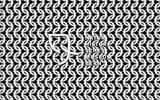
Reticulated giraffe
Giraffa camelopardalis reticulata
Twiga (Swahili)
Conservation status
Vulnerable. The species is at risk from habitat loss due to agriculture, urban development and road transport, as well as hunting.
Habitat
Savannahs, steppes
Biology
Giraffe cows live with their offspring in small groups. Young or non-dominant bulls form their own groups, known as bachelor herds. Dominant adult bulls are usually solitary, only joining a herd during the mating season. Giraffes mainly feed on acacia leaves, which they pluck from the treetops with their long tongues.

Dermoplastic exhibit
1950s–1960s
While this may look like an idyllic mother-child pair, it in fact consists of a reticulated giraffe bull alongside a young Masai giraffe.
Provenance
15 September 1956, young Masai giraffe, Basel Zoo; 14 March 1962, male reticulated giraffe, Nairobi, Kenya